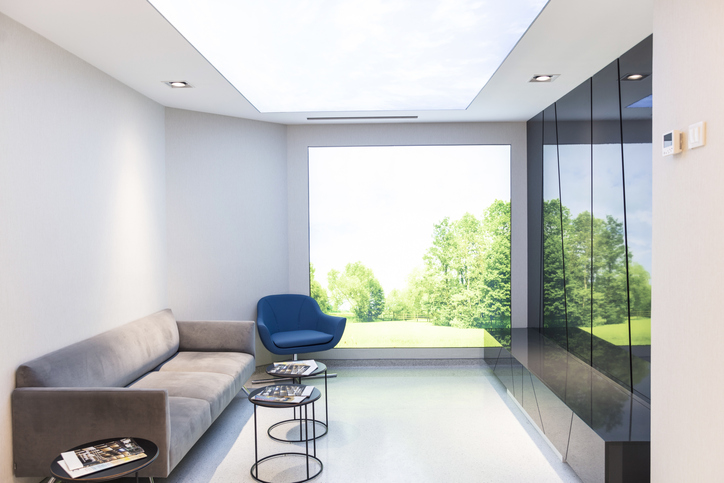めまいは日常生活に大きな支障をきたす厄介な症状です。突然のふらつきや立ちくらみに悩まされ、仕事や家事に集中できない経験をお持ちの方も多いのではないでしょうか。実はそのめまい、自律神経の乱れが原因かもしれません。
自律神経は体温調節や血流、内臓機能を司る重要な役割を担っており、ストレスや生活習慣の乱れによってバランスが崩れると、めまいとして症状が現れることがあります。
ここでは、めまいの症状や種類、自律神経が与える影響を解説し、根本的な改善方法や具体的な実践例をご紹介します。この記事を読むことで、原因を特定し、日常生活に取り入れやすい改善策を学ぶことができます。めまいに悩まない健やかな生活を手に入れましょう。

国立熊本大学医学部を卒業。国内大手美容クリニックなどで院長を歴任し、2023年アラジン美容クリニックを開院。長年の実績とエイジングケア研究で博士号取得の美容医療のプロ。「嘘のない美容医療の実現へ」をモットーに、患者様とともに「オンリーワン」を目指す。
そもそもめまいはなぜ起こる?その症状と種類を知る
朝の目覚めにふと感じたふわふわとした違和感、立ち上がった瞬間に目の前が暗くなる経験。あるいは、仕事中に天井がグルグル回るような感覚に襲われたことはないでしょうか?それは「めまい」と呼ばれる症状であり、身体からのSOSのひとつです。
ひとことで「めまい」と言っても、その原因や症状は様々です。中には内耳や脳の異常が影響することもあれば、自律神経の乱れが静かにその背後に潜んでいることもあります。ここでは、代表的な3つのめまいの種類とその特徴、発症するタイミングや原因について詳しく解説し、特に自律神経が関与する症状について紐解いていきましょう。
代表的なめまいの種類とその特徴
めまいは大きく分けて、以下の3つの種類に分類されます。それぞれの症状や特徴、発生するタイミングについて理解することは、自分の体調を知り、対策を考える第一歩です。
| 種類 | 主な症状 | 発症タイミング | 主な原因 |
|---|---|---|---|
| 回転性めまい | 天井や床が回る感覚 | 頭を動かした時や寝返りを打った時 | 内耳の異常、メニエール病 |
| 浮動性めまい | 地面がふわふわする不安定な感覚 | 疲労時や長時間の座り仕事後 | 自律神経の乱れ、ストレス |
| 立ちくらみ | 急に目の前が暗くなるクラッとする感覚 | 急に立ち上がった時 | 起立性低血圧、自律神経の不調 |
回転性めまい|世界がグルグルと回る感覚
まるで遊園地のコーヒーカップに乗っているかのように、世界がグルグルと回り続けるといったな強烈な感覚が「回転性めまい」です。突然、天井や床が回るように感じ、立っていることさえ難しくなることがあります。発症しやすいタイミングとしては、寝返りを打った時や急に頭を動かした瞬間が多く、日常の些細な動作が引き金になることも少なくありません。
主な原因は、内耳にある「三半規管」の異常です。この三半規管は体のバランスを保つための重要な役割を果たしていますが、ここに異常が生じると平衡感覚が乱れ、回転するようなめまいを引き起こします。具体的な病気としては、良性発作性頭位めまい症やメニエール病が代表的です。また、自律神経が乱れている場合には、症状が悪化することもあります。
浮動性めまい|ふわふわとした不安定な感覚
「まるで雲の上を歩いているよう」「地面が柔らかく感じる」といったふわふわとした不安定な感覚が続くのが「浮動性めまい」です。このタイプのめまいは、姿勢を保つことが難しく、立っていてもどこか安定しない不快感を伴います。
浮動性めまいが発症しやすいのは、長時間座り続けた後や、心身のストレスや疲れがピークに達している時です。脳への血流が低下することで、体全体のバランス感覚が乱れるのが一因です。また、自律神経の働きが崩れることで、血流や体のリズムがうまく調整されなくなり、めまいを感じることもあります。さらに、精神的なストレスが積み重なると脳の働きに影響し、症状が慢性化するケースも少なくありません。
立ちくらみ(動揺性めまい)|クラッと目の前が暗くなる瞬間
「急に立ち上がった瞬間、視界が暗くなる」「頭がボーッとして意識が遠のくようだ」といったそんなクラッとした瞬間が特徴的なのが「立ちくらみ(動揺性めまい)」です。日常生活でよく起こるため、「少し疲れているだけ」と軽視されがちですが、繰り返し症状が続くと不安感が強まり、日常の行動に支障をきたすこともあります。
このめまいが現れやすいのは、椅子やベッドから急に立ち上がった時や、長時間同じ姿勢で過ごした後です。原因としては、体の血圧調整が追いつかず、脳への血流が一時的に不足する起立性低血圧が挙げられます。これは自律神経の機能低下によって血圧のコントロールがうまくいかない時に起こりやすく、睡眠不足や過労、ストレスとも深い関わりがあります。
自律神経が関与している場合の特徴的な症状
自律神経は、体の内側で「交感神経」と「副交感神経」のバランスを保ちながら、血流や内臓機能、体温などを調整しています。しかし、このバランスが崩れると、以下のような特徴的な症状が現れることがあります。
- 朝、起床時に強いめまいが起こる
- デスクワークや長時間のスマホ使用後にふわふわする
- 倦怠感や頭痛を伴うことが多い
- 動悸や息苦しさがある
これらの症状は、ストレスや睡眠不足、不規則な生活習慣が重なった時に起こりやすいです。特に、現代社会においてはスマホやPCの使用時間が増加し、首や目に負担がかかることで自律神経のバランスを崩しやすくなっています。
自律神経とめまいの関係
前章で触れた回転性や浮動性のめまい、立ちくらみも、自律神経の乱れが原因で引き起こされるケースが少なくありません。自律神経は、私たちの体の中で静かに、けれど絶え間なく働き続け、心身のバランスを維持しています。
しかし、この重要な神経が乱れると、体内のさまざまな機能が崩れ、その結果、めまいという形で不調が表れることがあるのです。では、自律神経はどのような役割を果たし、どのように乱れ、めまいを引き起こすのでしょうか。
自律神経が果たす役割|体の司令塔としての重要性
自律神経は、私たちの意思とは関係なく、無意識のうちに体の機能を調節する神経です。交感神経と副交感神経という二つの働きがバランスを取り合い、体の内側から私たちを支えています。
- 体温調節:寒い時に体を震わせたり、暑い時に汗をかくことで体温を一定に保つ。
- 血流コントロール:血管を拡張・収縮させ、全身に必要な血液を送る。
- 内臓機能の調整:心臓の動きや消化器官の働きを管理する。
例えば、仕事中に緊張すると心拍数が上がり、リラックスしている時には自然と呼吸が深くなるなど、これらすべては自律神経が働いている証拠です。しかし、自律神経が乱れると、この精巧な調整機能が崩れ、さまざまな不調が表面化してしまいます。
自律神経が乱れる原因|現代人が抱える見えないストレス
自律神経のバランスが崩れてしまう要因は、私たちの生活の中にいくつも潜んでいます。例えば、ストレスは代表的な要因の一つです。仕事や人間関係、日常生活の中での小さな悩みが積み重なることで、交感神経が過剰に働き、体は常に緊張状態にさらされます。リラックスする時間が取れないまま過ごしていると、やがて自律神経のバランスが崩れ、不調が表れ始めるのです。
また、睡眠不足も無視できない問題です。睡眠は副交感神経を優位にし、体を回復させるために欠かせない時間ですが、夜更かしや不規則な生活リズムが続くと、自律神経の働きが乱れてしまいます。特に慢性的な睡眠不足は、心身のバランスを一層崩しやすくするでしょう。
さらに、女性の場合、ホルモンバランスの変化が大きく影響します。月経周期や妊娠、さらには更年期によるホルモンの変動は、自律神経にも影響を与えるため、体調の変化を感じやすくなります。これは女性特有のデリケートな問題であり、自律神経の乱れを引き起こす一因です。
加えて、現代社会ではスマホやPCの過剰使用も見過ごせません。長時間画面を見続けることで、目や首に負担がかかり、交感神経が過剰に刺激されます。目の疲れや首のこりが続くと、脳への血流が低下し、自律神経のバランスが乱れやすくなるのです。
こうした要因が複雑に絡み合うことで、自律神経は次第にその調整力を失い、体内の血流や内臓機能の調整がうまくいかなくなります。そして、結果として「めまい」という症状が表面化するのです。現代社会に生きる私たちにとって、自律神経の乱れは避けられない問題かもしれませんが、その仕組みを理解し、対策を講じることで症状を和らげることは十分に可能です。
自律神経の乱れがめまいを引き起こすメカニズム
自律神経が乱れると、体の調整機能にさまざまな影響が生じ、特に「血流の低下」と「平衡感覚の乱れ」が起こりやすくなります。これが原因となり、めまいの症状として現れることが多いのです。
まず、自律神経は血管の収縮や拡張をコントロールし、全身に必要な血液を供給する役割を担っています。しかし、自律神経が乱れるとその調整機能が低下し、脳への血流が不足してしまいます。その結果、脳が一時的な酸素不足に陥り、ふらつきや立ちくらみを引き起こすのです。特に起床時や急に立ち上がった際に「クラッ」とする症状が現れやすく、日常生活に不安を感じる要因となります。
また、内耳にある「三半規管」は、体の平衡感覚を司る重要な器官です。自律神経が乱れることでこの内耳の働きが不調になると、平衡感覚がうまく保てなくなり、回転性のめまいが生じることがあります。例えば、「天井が回るように感じる」「地面が揺れているようだ」といった症状は、こうした内耳の機能低下によるものです。
さらに、ストレスが蓄積されると、交感神経が過剰に働き、体が常に緊張状態となります。この状態が続くことで、筋肉が過度に緊張し、肩や首のこりが悪化します。血行が悪くなると、脳への血流や平衡感覚にも影響を及ぼし、ふわふわとした不安定な浮動性のめまいを引き起こすことがあるのです。
自律神経の乱れによるめまいの原因とチェックリスト
前章では、自律神経が乱れることで血流や平衡感覚に影響が出ること、そしてその結果、さまざまなめまいが引き起こされるメカニズムを解説しました。しかし、日常生活に潜む自律神経を乱す原因に気づかなければ、症状は繰り返されてしまいます。
ここでは、自律神経が乱れる主な原因を明らかにし、セルフチェックリストを使って自分の状態を見直す方法をご紹介します。そして、「これは病院に相談すべき?」と迷った時の判断基準もお伝えします。日々の生活習慣を見つめ直すことで、めまいの改善への一歩を踏み出しましょう。
自律神経の乱れによるめまいのセルフチェックリスト
以下の項目にいくつ当てはまるか確認してみましょう。自分の状態を客観的に知ることで、早めの対策が可能になります。
| チェック項目 | YES/NO |
|---|---|
| 朝起きた時に、ふらつきや立ちくらみを感じることがある | |
| 疲れているのに、夜なかなか眠れない、または途中で目が覚める | |
| デスクワークやスマホ操作が続くと、目の疲れや首・肩のこりがひどくなる | |
| コーヒーやエナジードリンクを1日に何杯も飲む習慣がある | |
| 急に立ち上がるとクラッとしたり、目の前が暗くなることがある | |
| 日中、何もしていないのに疲労感やだるさを感じることが多い | |
| ストレスが溜まると頭痛や動悸、不安感を感じることがある | |
| 休日もゆっくり休んだ気がしない、疲労が抜けにくい |
YESが3つ以上ある場合、自律神経が乱れている可能性が考えられます。生活習慣の見直しやリラックスする時間を意識して取り入れましょう。
病院で相談すべきタイミングと症状の見極め方
自律神経の乱れによるめまいは、軽度であれば生活習慣の改善で改善することもあります。しかし、以下の症状が現れた場合は、迷わず病院を受診しましょう。
- めまいが繰り返し起こり、日常生活に支障が出ている
- 立ちくらみやふらつきがひどく、転倒しそうになることがある
- 頭痛や耳鳴り、吐き気、手足のしびれを伴う
- 動悸や息苦しさ、不安感が強くなってきた
こうした症状は、自律神経の乱れ以外に、脳や内耳の異常が隠れている可能性も考えられます。特に、めまいが急激に起こったり、症状が悪化している場合は、早めに専門医の診察を受けることが大切です。
めまいを改善するための生活習慣の整え方
自律神経の乱れがめまいの原因になり得ること、そのメカニズムや要因について解説してきました。しかし、生活習慣を少し見直すだけで、自律神経を整え、めまいの症状を軽減することは十分に可能です。
自律神経は、毎日の食事や睡眠、ストレス管理、そして朝のちょっとした習慣によって大きく左右されます。私たちの体と心は、日々の生活の積み重ねでつくられるものだからこそ、生活習慣の改善はめまいの根本的な対策になるのです。ここからは、めまいを改善し、自律神経を整えるための具体的な方法についてご紹介します。
規則正しい睡眠と食事の重要性
私たちの自律神経は、日々の睡眠と食事に大きな影響を受けています。特に、睡眠は「自律神経を回復させるための最良の時間」とも言える重要な役割を果たしています。睡眠中は副交感神経が優位になり、体と心がリラックスして回復する時間です。しかし、睡眠不足や睡眠の質が低下すると、この回復のサイクルが乱れ、自律神経のバランスが崩れやすくなります。これが続くと、血流や体内リズムが乱れ、ふらつきや立ちくらみなどのめまいが引き起こされてしまうのです。
理想的な睡眠時間は1日7〜8時間とされています。毎日決まった時間に寝起きすることが、自律神経のリズムを整える大切なポイントです。また、就寝前1時間はスマホやPCの使用を控え、脳に刺激を与えないことも重要です。部屋の照明を落とし、静かでリラックスできる環境をつくることで、より深く質の良い睡眠が得られるでしょう。
一方で、毎日の食事も自律神経を整えるためには欠かせない要素です。特に、神経の働きをサポートする栄養素をしっかりと意識して取り入れることが、体内からの健康維持につながります。例えば、タンパク質は自律神経を支えるホルモンや酵素の材料として不可欠です。鶏むね肉や卵、魚、大豆製品など、タンパク質を豊富に含む食品を意識的に摂取しましょう。
さらに、神経の働きを助け、疲労回復にも役立つのがビタミンB群です。豚肉や玄米、納豆、バナナなどはビタミンB群を多く含み、エネルギー代謝を促してくれます。また、筋肉の緊張を和らげ、リラックス効果を高める働きがあるマグネシウムも忘れてはいけません。海藻類やナッツ類、ほうれん草などを積極的に取り入れることで、心と体の緊張をほぐし、安定した自律神経の働きをサポートします。
例えば、日々の食事に以下のような食品を組み合わせると、自然に栄養バランスが整います。
| 栄養素 | 働き | 代表的な食品 |
|---|---|---|
| タンパク質 | ホルモンや酵素の材料として自律神経を支える | 鶏むね肉、卵、魚、大豆製品 |
| ビタミンB群 | 神経の働きを助け、疲労回復を促す | 豚肉、玄米、納豆、バナナ |
| マグネシウム | 筋肉の緊張を和らげ、リラックス効果を高める | 海藻類、ナッツ類、ほうれん草 |
睡眠と食事はどちらも自律神経を整えるための土台となります。まずは「早寝早起き」と「栄養バランスの取れた食事」を意識して、小さなことから改善を始めましょう。生活の中でのこうした積み重ねが、自律神経を整え、めまいの症状を軽減する第一歩となるのです。
日常で実践できるケアポイント
| 方法 | 期待される効果 |
|---|---|
| 深呼吸 | 副交感神経が優位になり、緊張を和らげる。 |
| スマホ・PC休憩 | 目や首の筋肉の緊張を軽減し、血流を改善する。 |
| 就寝前の対策 | 睡眠の質が向上し、自律神経の回復が促進される。 |
| 朝日を浴びる | 体内時計がリセットされ、ビタミンDが分泌される。免疫力アップ。 |
| 軽い運動 | 体が目覚め、血流改善やリフレッシュ効果が得られる。 |
ストレスは、自律神経を乱す大きな要因です。緊張状態が続けば交感神経が過剰に働き、体の不調が表れやすくなります。そんな時は、心身をリラックスさせる方法を積極的に取り入れましょう。
たとえば、深呼吸は手軽にできるリラックス法です。ゆっくりと鼻から息を吸い込み、お腹が膨らむのを感じたら、口からゆっくりと吐き出します。これを数回繰り返すことで副交感神経が優位になり、自然と緊張がほぐれていきます。
また、スマホやPCを1時間ごとに画面から目を離し、遠くを見たり目を閉じたりして休憩を取りましょう。これだけでも目や首の筋肉の緊張が和らぎ、血流が改善されます。また、姿勢も重要です。画面は目線の高さに合わせ、背筋を伸ばして首への負担を減らすよう意識しましょう。
特に、就寝前のスマホ使用は避けるべきです。ブルーライトが脳を刺激し、睡眠の質を低下させるため、寝る1時間前にはスマホやPCを控え、静かな環境で心と体を整えましょう。
より簡単に実践しやすいこととして、朝日を浴びることです。起床後に窓を開けて朝日を浴びることで、体内時計がリセットされ、自然と交感神経が働き始めます。心地よい朝の光は、心身の目覚めをサポートしてくれます。朝日を浴びるとビタミンDも分泌され、免疫力アップにもつながります。
また、普段のウォーキングや軽いストレッチといった軽い運動を行うことで血流が促進され、体が徐々に目覚めていきます。無理なく続けられる範囲で、体を軽く動かすことがポイントです。
まとめ
ここでは、自律神経の乱れが原因となるめまいの特徴や対策について詳しく解説しました。規則正しい睡眠や栄養バランスの取れた食事、ストレスケアや日々の簡単なケアを取り入れることで、自律神経を整え、めまいの改善が期待できます。
朝日を浴びることや軽い運動、リラックス法など、日常生活に無理なく組み込める方法もご紹介しました。継続的なケアが、健康な体と心を育む鍵です。それでも症状が続く場合は、早めに専門医に相談することを忘れずに。自律神経を整えることで、めまいのない快適な日常を手に入れましょう。
アラジン美容クリニックでは、美容医療および美容皮膚における長年の経験や博士号を持つ知見より、出逢う皆様のお一人ひとりに最適な施術を提供する「オンリーワン」を目指すカウンセリングを実施し、余計な情報や提案をせず、「ウソのない」美容医療で、必要な施術のみをご提案しております。
LINE公式アカウントにて、お気軽に24時間カウンセリングや予約を受付しております。無料カウンセリングで初めての方やお悩みの方はぜひ一度ご相談くださいませ。






